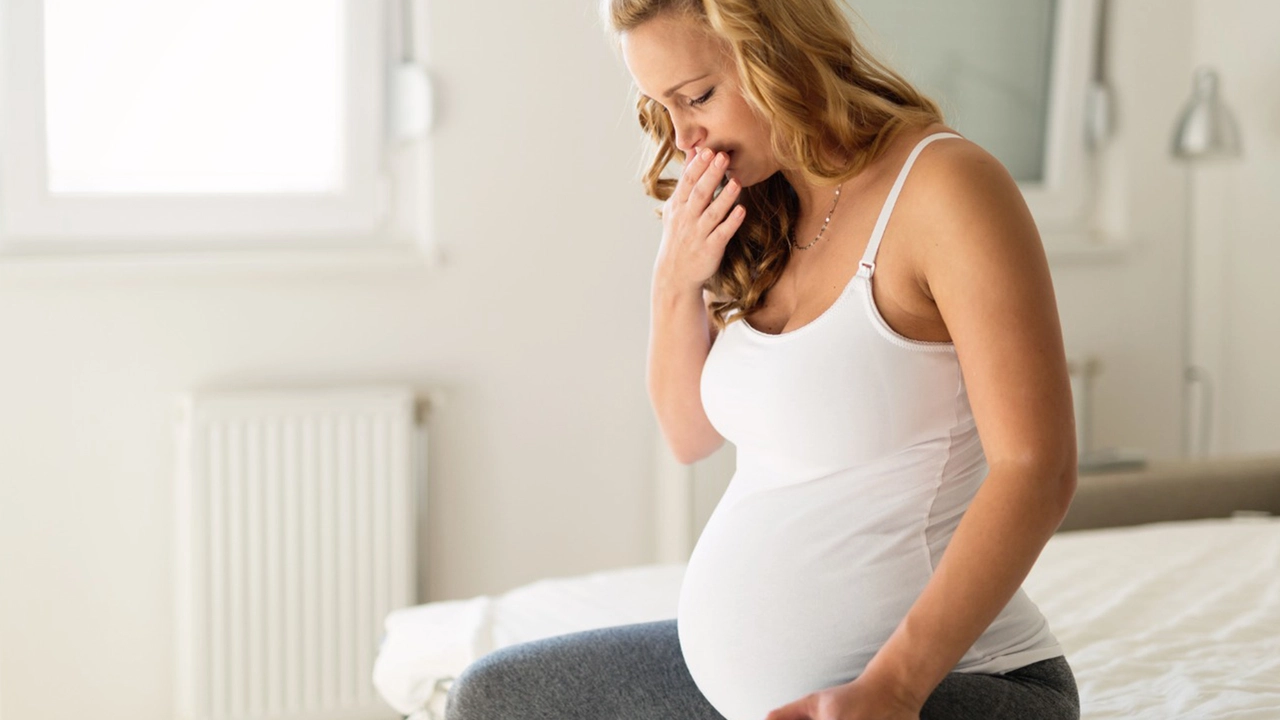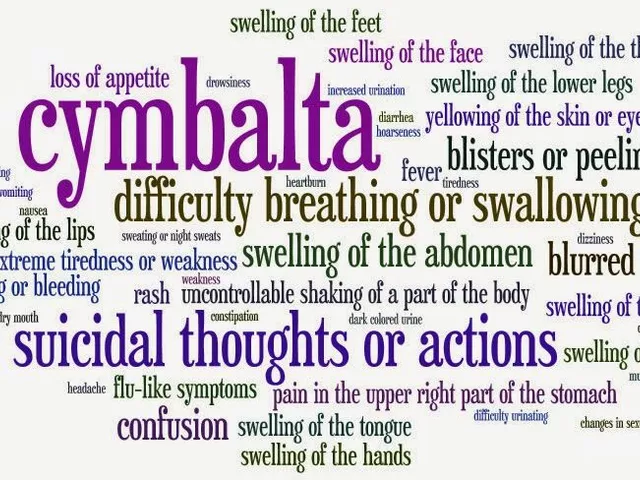 18
Jun,2023
18
Jun,2023
Understanding Motion Sickness and Pregnancy
As a pregnant woman, it is not uncommon to experience dizziness and motion sickness. This is due to the hormonal changes that occur during pregnancy, which can lead to an increased sensitivity to motion. In this section, we will discuss the connection between motion sickness and pregnancy, as well as the reasons behind this unpleasant sensation. By understanding the causes of dizziness and motion sickness in pregnant women, we can better manage and prevent these symptoms from affecting our daily lives.
Motion sickness is a condition that is characterized by dizziness, nausea, and sometimes vomiting. It is caused by the brain receiving conflicting signals from the inner ear, eyes, and other sensory receptors, which can be triggered by movement or the perception of movement. Pregnant women are more susceptible to motion sickness due to hormonal changes, such as increased levels of estrogen and progesterone. These hormones can affect the functioning of the vestibular system, which is responsible for maintaining balance and spatial orientation. As a result, pregnant women may experience an increased sensitivity to motion and a higher likelihood of dizziness and motion sickness.
Managing Dizziness and Motion Sickness during Pregnancy
Experiencing dizziness and motion sickness during pregnancy can be quite uncomfortable and even debilitating for some women. It is important to find ways to manage and prevent these symptoms in order to maintain a healthy and active lifestyle during pregnancy. In this section, we will discuss some practical tips and strategies to help you cope with dizziness and motion sickness during pregnancy.
One effective strategy is to avoid triggers that can cause motion sickness, such as reading in a moving vehicle, watching fast-paced or shaky videos, or sitting in the back seat of a car. Instead, try to focus on a fixed point in the distance and take slow, deep breaths to help reduce dizziness and nausea. It is also important to ensure that you are well-hydrated, as dehydration can exacerbate motion sickness symptoms. Drinking small sips of water or sucking on ice chips can help to keep you hydrated and alleviate feelings of nausea.
Natural Remedies for Motion Sickness in Pregnant Women
Many pregnant women prefer to use natural remedies to manage their dizziness and motion sickness, as these options tend to have fewer side effects and are generally considered safe for both mother and baby. In this section, we will explore some popular natural remedies that may help to alleviate dizziness and motion sickness during pregnancy.
Ginger is a well-known natural remedy for motion sickness, as it has been shown to have anti-nausea properties. Pregnant women can consume ginger in various forms, such as ginger tea, ginger ale, ginger chews, or ginger capsules, to help minimize symptoms of dizziness and nausea. Acupressure wristbands, which apply pressure to specific points on the wrist, can also be effective in reducing motion sickness symptoms. These wristbands are available at most drugstores and can be a convenient and drug-free option for managing dizziness and nausea during pregnancy.
Medical Treatments for Dizziness and Motion Sickness in Pregnant Women
While natural remedies can be effective for some pregnant women, others may require medical intervention to manage their dizziness and motion sickness. In this section, we will discuss some medical treatments that may be recommended by healthcare providers for pregnant women experiencing severe dizziness and motion sickness.
Over-the-counter antihistamines, such as meclizine and dimenhydrinate, can be effective in reducing symptoms of motion sickness in some pregnant women. However, it is important to consult with your healthcare provider before taking any medications during pregnancy, as some antihistamines may not be safe for you or your baby. In more severe cases, your healthcare provider may prescribe a medication specifically designed to treat motion sickness, such as scopolamine. This medication is available in the form of a patch that is applied behind the ear and can be effective in reducing dizziness and nausea for several days at a time.
When to Seek Medical Attention for Dizziness and Motion Sickness during Pregnancy
While dizziness and motion sickness can be common and generally harmless symptoms of pregnancy, it is important to be aware of when to seek medical attention. In this section, we will discuss some warning signs and situations that may warrant a visit to your healthcare provider.
If your dizziness and motion sickness symptoms are severe and persistent, causing you to be unable to keep down food or fluids, it is important to consult with your healthcare provider. This can be an indication of a more serious condition called hyperemesis gravidarum, which requires medical intervention and monitoring to ensure the health and well-being of both mother and baby. Additionally, if you experience sudden, severe dizziness accompanied by other concerning symptoms, such as severe headache, blurred vision, chest pain, or difficulty breathing, seek medical attention immediately, as these could be signs of a more serious underlying condition.






Thanks for the thorough breakdown! It's great to see practical tips like staying hydrated and focusing on a fixed point. I also appreciate the reminder to avoid reading in a moving car, which I never thought about. Keep the helpful info coming!
I find it fascinating how estrogen and progesterone tweak the vestibular system, making motion feel amplified. The article nicely ties hormonal shifts to sensory conflicts. This perspective helps me understand why my own nausea spikes during road trips.
Wow!!! 🌟 This guide is a lifesaver!! 🎉 Staying hydrated, ginger tea, and wristbands are all gold ✅!! Keep crushing those motion-sick moments!!! 🙌🚗
From a physiological standpoint, the vestibular nuclei receive altered input due to hormonal modulation, which can desensitize the central compensation mechanisms. Consequently, the brain's integration of visual and proprioceptive cues becomes less stable. This explains the heightened dizziness in pregnant travelers. Moreover, slow diaphragmatic breathing can engage the parasympathetic system, reducing nausea. Integrating these strategies may offer a holistic approach.
Some pharmaceutical companies might downplay natural options to push expensive antihistamines on vulnerable patients. They subtly insinuate that only prescription drugs work, ignoring centuries of herbal wisdom. Yet the evidence for ginger remains robust and inexpensive.
Honestly, most of this advice feels like generic blog fluff. If you really want relief, you need something stronger.
They’re probably tracking motion‑sick pregnant women for data mining.
Different cultures have varied ways to cope, such as aromatic teas or specific breathing patterns. Sharing those practices can broaden our toolkit.
It is evident that the decline in traditional remedies coincides with foreign influences on our healthcare system. Our national policies must prioritize indigenous knowledge to protect mothers. A sovereign approach will ensure safety.
Actually, the vestibular response to estrogen is documented in multiple obstetric studies, not just speculative articles. You’ll also find that the inner ear fluid dynamics shift, which is why sip‑by‑sip hydration matters. So, when you’re reading about ginger, remember it also modulates gastric motility.
Pregnancy introduces a cascade of endocrine adjustments that reverberate through virtually every organ system. Among these, the vestibular apparatus is particularly sensitive to fluctuations in estrogen and progesterone. These hormones modulate ion channel expression in the hair cells, altering their responsiveness to angular acceleration. When the inner ear sends signals that conflict with visual inputs, the brain interprets this mismatch as motion. For a non‑pregnant individual, central compensation quickly resolves the discord. In contrast, the hormonal milieu reduces the speed and efficacy of that compensation. The resulting sensory dissonance manifests as vertigo, nausea, and occasionally vomiting. Moreover, blood volume expands during pregnancy, which can affect cerebral perfusion and exacerbate dizziness. Dehydration, even mild, compounds these effects by lowering plasma volume further. Therefore, a regimen of small, frequent fluid intake is not merely comfort but a physiological necessity. Ginger, with its gingerol compounds, interacts with the serotonergic pathway to dampen nausea signals. Acupressure wristbands apply pressure to the P6 point, which has been shown in some trials to alleviate motion‑induced discomfort. Pharmacologic options like meclizine act as antihistamines, blocking H1 receptors that participate in vestibular signaling. However, their anticholinergic side effects warrant cautious use under medical supervision. In severe cases, scopolamine patches provide sustained anticholinergic activity, but they must be prescribed after weighing fetal risk. Ultimately, a multimodal strategy-hydration, dietary ginger, positional awareness, and judicious medication-offers the most comprehensive protection against pregnancy‑related motion sickness.
Leveraging integrative physiology, we can synergize vestibular habituation protocols with nutraceutical bioavailability optimization. Employing controlled exposure to low‑amplitude oscillations primes the otolithic organs, while concurrently enhancing ginger phytochemicals via liposomal encapsulation maximizes systemic absorption. This dual‑pronged approach aligns with evidence‑based practice and reduces reliance on antihistaminergic agents.
One must discern the epistemological underpinnings of why mainstream obstetrics marginalizes time‑honored phytotherapy, a phenomenon that reeks of institutional complacency. The clandestine corridors of pharmaceutical lobbying subtly dictate the therapeutic narrative, ensuring that only synthetically engineered antagonists dominate the discourse. Yet, the ontological truth remains that nature's own ginger, a humble rhizome, possesses a panoply of anti‑emetic virtues. It is incumbent upon the discerning scholar to champion such veritable gifts, lest we capitulate to a mechanistic paradigm bereft of holistic nuance. In summation, the confluence of tradition and rigor should dictate clinical praxis.
I’m not buying the hype about ginger being a miracle cure :) It’s just a spice, and there are plenty of other things that work better for me ;) Keep questioning the mainstream, folks!
Hey folks, remember that every little adjustment you make adds up to big relief-in staying hydrated, in pausing to breathe, and in reaching out for support. You’ve got a whole community behind you, and we’re all learning together. Keep pushing forward, you’ve got this!